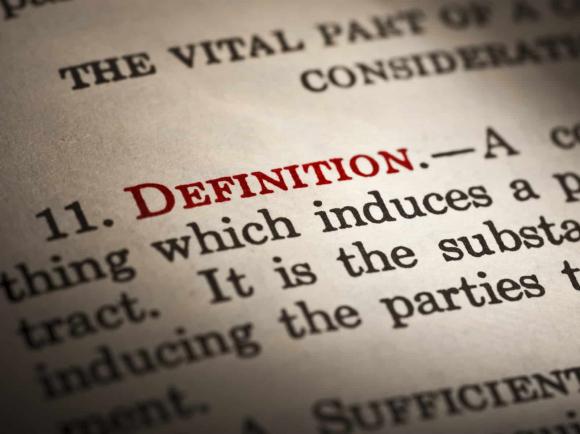
Some words are celebrated more than others. Oxford Dictionaries recently named the 'Face with Tears of Joy' emoji word of the year, while Merriam-Webster said the word of the year was, well, "ism."
And while these words of the year weren't exactly words in the truest sense, they were some of the most frequently used words in 2015, which is why they were given such an honor.
But not all words receive such high accolades. In fact, as 2016 got off the ground this week, many writers across the Internet unveiled what words they think need to, well, disappear.
MTV's Taylor Trudon said people in 2016 need to drop words like "lit," "woke" and "savage." These words certainly won't go away in the greater American vernacular, but their new definitions have been a cause for concern, Trudon wrote. For example, words like "lit" and "woke" refer to something being amazing or becoming aware of something, respectively, which aren't their true definitions.
Bill Schulz of The Daily Beast similarly offered his thoughts on what words people need to say goodbye to this year. The phrase "I feel like" topped his chart, along with its acronym IFL, and so did "so," at least in terms of using it at the beginning of sentences and for dramatic effect.
Schulz also said the phrase "BT-Dubs" - a reference to BTW or "by the way" - as well as the phrase "a hundred percent," a word often used to add hyperbole, need to be dropped from American conversation.
These sort of words, though, reference something bigger about our culture, Schulz said. People use these words to feel like they fit in, The Daily Beast reported.
"We've done this forever," American University professor Naomi S. Baron told The Daily Beast. "Acronyms, shortened words "� it's never been about saving time or instant messaging, it's always been about sounding cool or in the know."
Still, this hasn't prevented academics from choosing words that need to get the "fetch" treatment and be stopped ahead of time.
Lake Superior State University published its 41st annual list of banished words that comes from nominations from more than 800 entries.
"Overused words and phrases are 'problematic' for thousands of Queen's English 'stakeholders,'" the list's press release said. "Once something is banished, there's no 'walking it back;' that's our 'secret sauce,' and there's no 'price point' for that."
Here's a look at some of the words on the list and their definitions.
So
The word is often used for hyperbole, or to begin a sentence.
Conversation
The word is often used by media members to reference a larger topic that expands to many people.
Problematic
This word, according to the LSSU list, took the place of "that is a problem" and can often be used as hyperbole for things that aren't too, well, problematic.
Stakeholder
Though this word is supposed to reference people who have a say in a product or business, people use it now to describe anyone involved in any situation, the list said.
Price point
This word is the result of two words being used together when only the first one, price, is necessary.
Secret sauce
Businesses have started to use this as a way of "cracking the code" or "finding the secret," when in reality it's more fitting for fast food, the list explained.
Break the Internet
The word is often used on the Internet to describe topics, trends and stories that have gone viral.
Walk it back
This phrase is often used by politicians to take back or retract a statement, the list said.
Presser
Some journalists use this to refer to a press conference.
Manspreading
This word references a man spreading his legs a little too far for comfort on a train or at an event, the list said.
Vape
This word refers to using an e-cigarette, since devices for smoking e-cigarettes "emit vapor instead of smoke," the list said.
Giving me life
People who are excited use this word, when in reality they're already living.
Physicality
Sports broadcasters and fans use this word a lot to describe a player or athlete who tends to be more aggressive, the list said.

